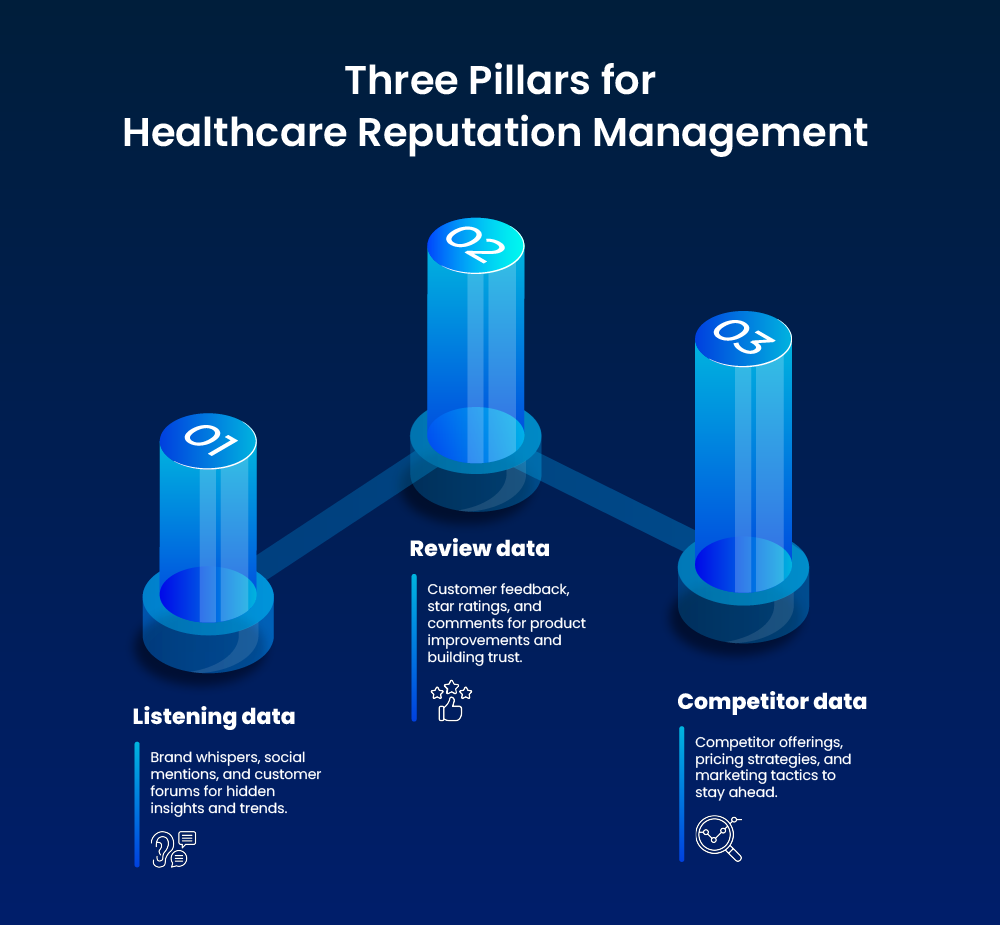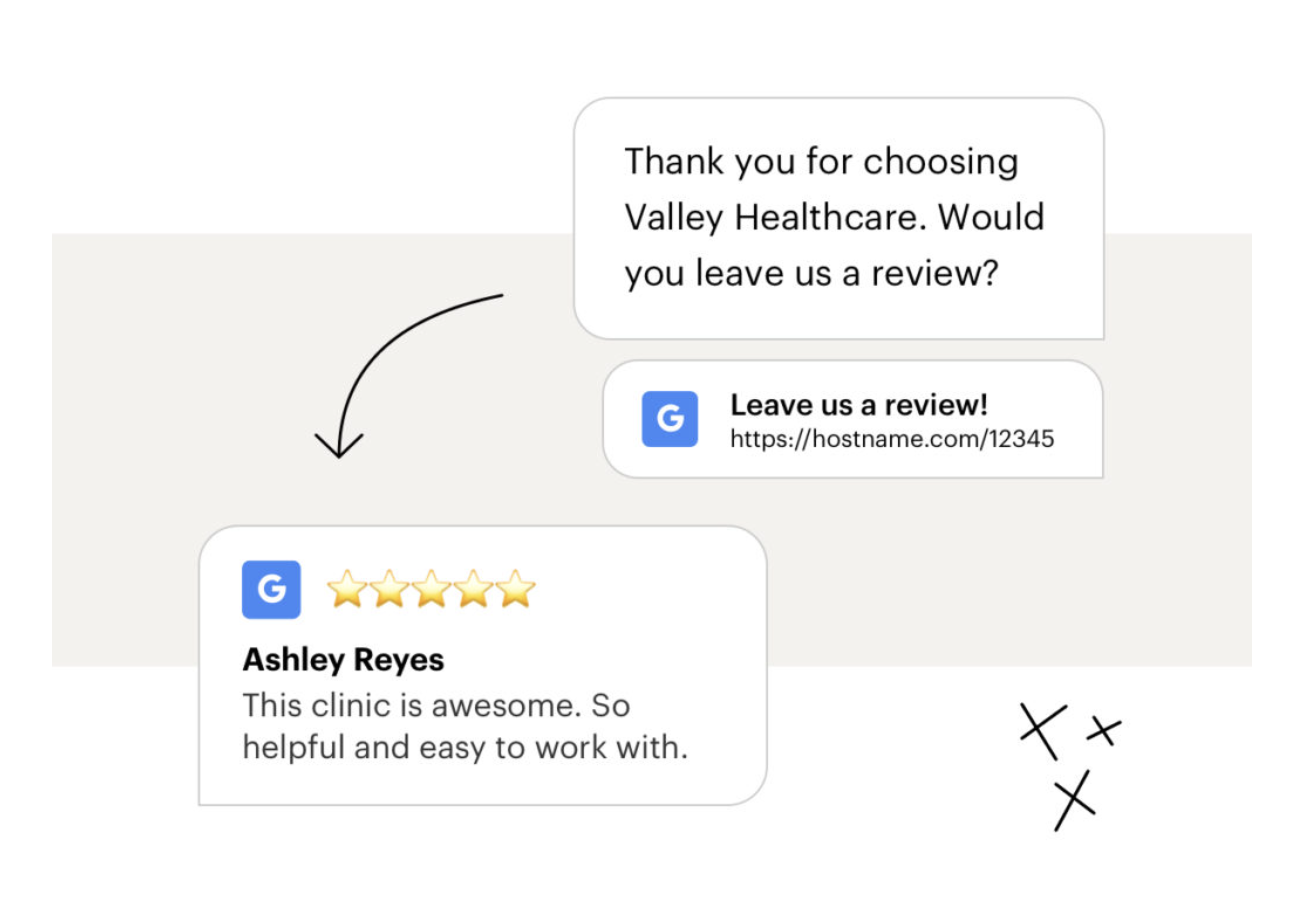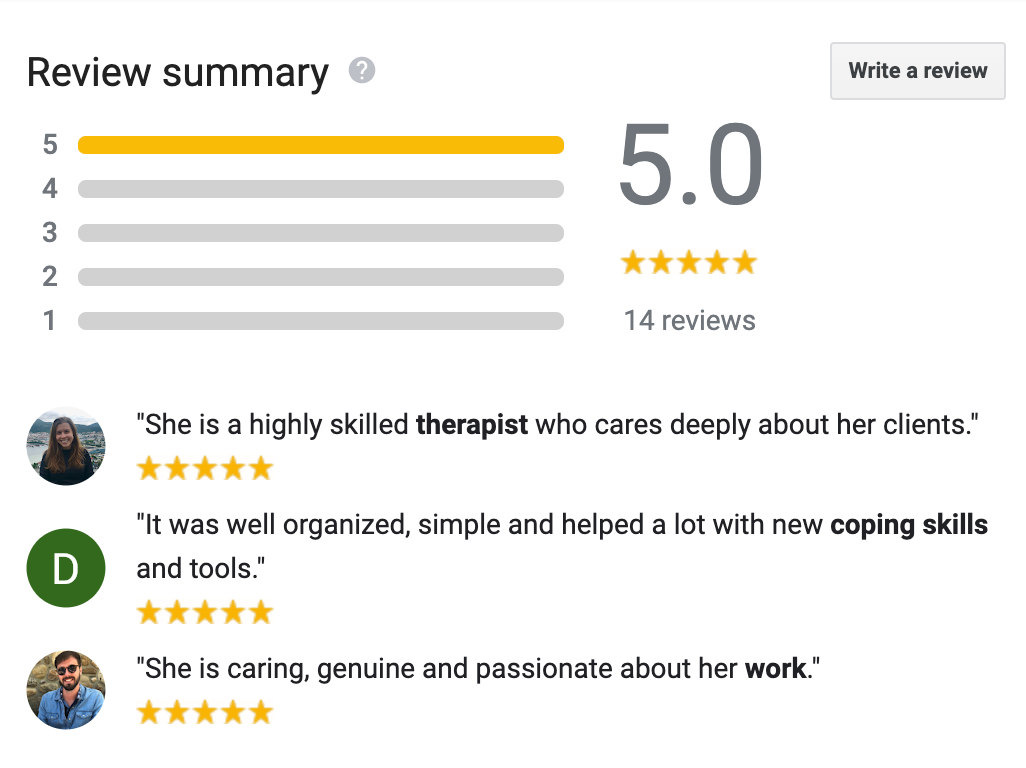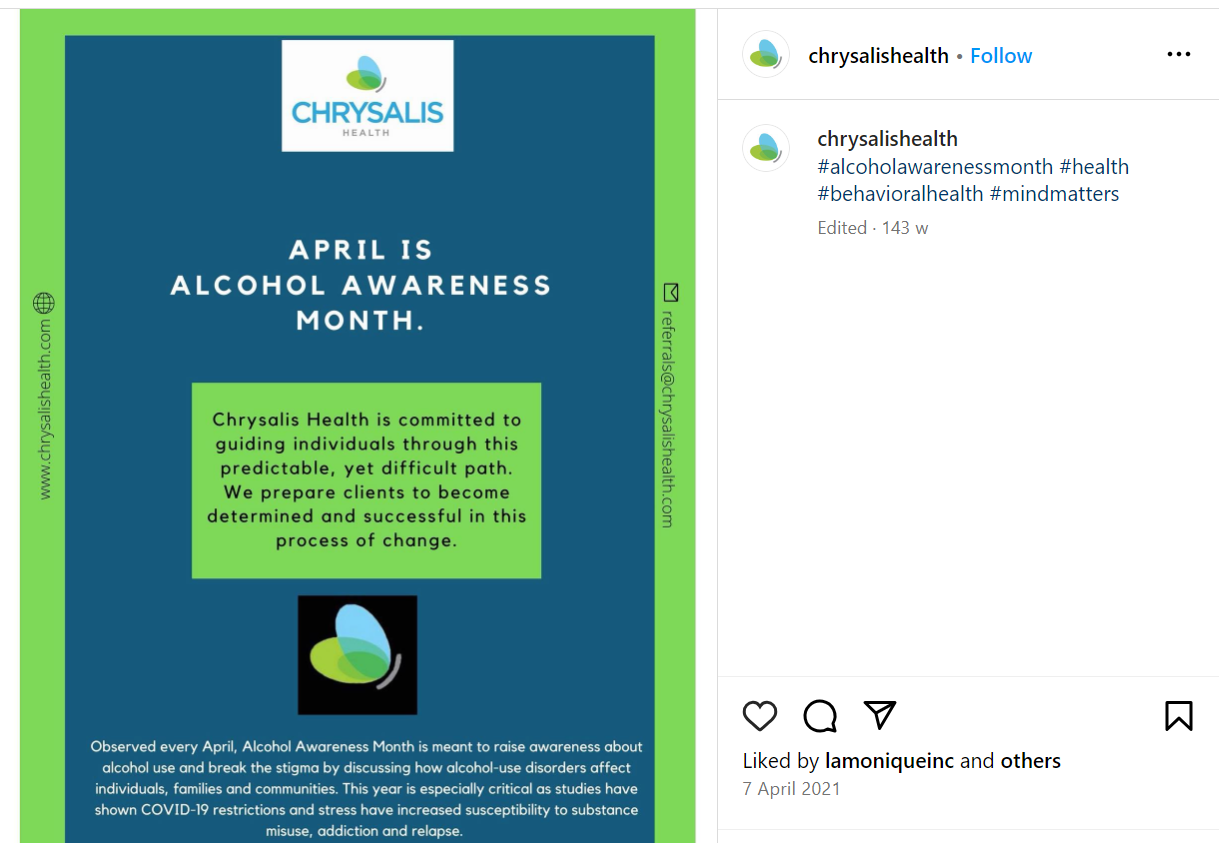Gone are the days when we depended on neighbors’ referrals for selecting doctors. Today, Sam located his general physician from Google, Rick found his diabetologist from Practo, and Richa discovered her dermatologist from Instagram reels (Yes, the dermat’s skincare routine was trending!)
People are well-informed these days and believe in doing their own research rather than blindly following anyone’s advice.
Moreover, research is not limited to the doctor’s qualifications but includes looking at the reviews to understand the hospital’s reputation. Therefore, healthcare reputation management is no longer an option; it is a necessity to ensure the growth of your hospital or clinic.
In this article, we will cover everything related to healthcare reputation management.
Key takeaways:
- Importance of healthcare reputation management
- Tips and tricks to improve healthcare reputation
- Tools that will make reputation management easy
Let’s start with understanding what healthcare reputation management is.
What Is Healthcare Reputation Management?
Healthcare Reputation Management (HRM) refers to actively watching and protecting the online and offline perception of your healthcare providers and organization.
If a patient has had a good experience with your hospital and is happy with your service, they will share only good reviews online or offline.
And patient experience starts the moment they park their car at your hospital or visit your website. Therefore, everything from a user-friendly website to staff behavior or even the parking space can affect your reviews.
However, it is not limited to monitoring online reviews. It is more about building a brand that people believe in and trust.
There are three pillars of healthcare reputation management (like any other industry):

- Listening data: It simply means social listening; with this, brand managers or healthcare marketers can monitor and understand conversations about their brand, people, or services. It helps you see beyond the reviews and understand what people have in their minds. There are social tools like Locobuzz and Sproutsocial available today to automate the process.
- Competitor data: While listening to social data helps you understand your position amongst your audience, listening to competitors’ social data enables you to understand your position in the industry. Competitors’ social information can also help you understand their brand reputation, patient loyalty, and weaknesses in services. This way, you can always stay ahead of your competition.
- Review data: It refers to online reviews related to your organization, people, or offerings on any platform, such as a website or third-party listing platforms. Monitoring online reviews is a significant step in building a reputation.
Pro tip:
If you have recently started your healthcare organization, start with collecting and managing “Review data.” It will help improve retention and attract new patients. Once patients start leaving reviews, then move to “Competitor and Listening data.”
Healthcare has always been an industry where work speaks for itself. And now that we know what healthcare reputation management is, the question of why we need to do it in the first place remains unanswered.
So let’s understand why reputation management in healthcare is more important than ever.
Importance of Healthcare Reputation Management in 2024
“Online reviews and directory listings may not seem that important, but they play a crucial role in maintaining a steady flow of patients choosing you over somebody else and ultimately that’s what keeps the lights on.”
—Garrett Smith, founder and CEO of InboundMD
In the last decade, the world has witnessed consumer behavior change across industries, and healthcare is no exception. We used to rely on friends’ advice, but now we’re all about checking out things online. Before going to the actual doctor, we go to “Dr. Google.” A study says that there are over 70,000 online searches related to healthcare per minute per day. So, if someone were to search for your doctor or hospital, would you like to show them glowing golden stars or uncertain question marks? Of course, striving for those golden stars would be the aim, and this is why it is essential to manage the reputation of your hospital, clinic, or doctors.
As we said earlier, healthcare reputation management is not just about online reviews anymore but about building a brand and peoples’ trust. Unlike earlier, people now don’t just follow doctors; they evaluate the whole clinic or hospital and services.
“Earlier, healthcare used to revolve around a doctor-centric pull. People would choose hospitals based on the doctors and also had a concept of family doctors. However, now it has shifted towards a hospital-centric pull. People look for trustworthy brands, believing they will receive the best care. For example, simply stating that the doctor is from Fortis enhances trust automatically. And even standalone clinics are building their brand.”
— Business Development Manager – Healthcare, LeadSquared
Now let’s look at some tips to improve healthcare reputation management.
Tips to Improve Healthcare Reputation Management
1. Automate patient reviews
Your office staff is mostly bogged down with scheduling appointments and focusing on providing a great patient experience for everyone in the healthcare facility. The team can’t possibly remember to ask every single patient to leave a review.

When you implement healthcare customer relationship management (CRM) software that automatically sends a text or an email to each patient within hours of their appointment, you can increase patient reviews inflow without adding more work for your team.
Additionally, you can also choose a Healthcare CRM that automatically pushes the reviews out to the most popular review sites, including Google, Yelp, and Healthgrades.
How does automating patient feedback improve provider reputation?
It’s simple. After each appointment, patients receive a request from the practice to leave a review. It can be as easy as rating their experience on a scale of 1-5 stars, or the request can include a few short questions and space to leave comments.
When it only takes a minute or two, the majority of patients are happy to click the buttons on their phones or computers to provide the necessary feedback.

Incidentally, only 1 % of patients leave “very negative” reviews. This means the majority of patients will offer a great rating when they’re having a great patient experience. Sharing these ratings and reviews on your website and social handles will build a good reputation and trust among future potential patients.
Moreover, you can also set an automation to forward negative reviews to your support team. They can get in touch with the patient and provide a resolution.
2. Revamp your website
It’s quite off-putting to search for a new provider, discover one with a stellar reputation, then arrive at an outdated, non-mobile-user-friendly website. To improve your reputation and digital credibility, take inventory of your website with the following criteria:
- Is your website easy to navigate?
- Is your website mobile-friendly? (More than 60 percent of patients look-up health information from their smartphones.)
- Does your website have a clean, simple, uncluttered design?
- Can patients request an appointment with the click of a button?
- Does your website clearly communicate your services and specialties?
- Does your website integrate seamlessly with your healthcare CRM?
Anything you can do to contribute to a positive patient experience from the first contact with the practice or hospital website helps boost your reputation.
The goal is to get prospective patients to feel happy and satisfied with their online experience so they’re more inclined to book an appointment or schedule a consultation.
3. Establish or improve your professional social media presence
Why do you need social media to boost your healthcare organization and physician reputations?
You need it because that’s one of the ways today’s patients search for new healthcare providers.
If your organization is new to social media, maintaining a business page or presence can seem overwhelming, but it doesn’t have to be.
You can begin by considering your patient demographics and your target audiences comprising of current and future patients.
Facebook users
- As of July 2021, the largest age group of Facebook users in the United States is the 25–34-year-olds at almost 24%.
- Coming in at close second is a tie between users, aged 18-24 and 35-44, at just over 18 % each.
- Collectively, about 62 % of people, aged 18-44, may be searching for a new healthcare provider online.
Moreover, when including the 45-54 age group (nearly 14 percent) and the 55 and over group (approximately 11 percent), the target audience expands to encompass 97% of the population!
If your healthcare organization doesn’t have a Facebook business page, you might be losing business to competitors who are marketing to all those prospective patients in your area.
Instagram users
Want to focus on a target demographic of 18-34-year-old? Try adding an Instagram account to your social media platform to reach nearly 60 % of users in that age bracket.

Wondering what to post?
Keep it simple. Add content relevant to your practice’s specialty once or twice a week and personalize it for your individual offices so prospective patients can get a feel for the professionalism, friendliness, and personality of the practice and providers.
Social media is all about educating patients and building relationships that can directly and positively impact your professional reputation.
Patients who regularly see your organization and practioners in the online spaces they spend time in will choose you when it comes to booking an appointment.
As we have talked a lot about reviews, it is essential to understand that while replying to these reviews one needs to keep HIPAA guidelines in mind. Let’s understand how.
How to Respond to Reviews in a HIPAA Compliant Way
It is important to ensure that you do not share or acknowledge any PHI in the replies. Here are the details to avoid:
- Name
- Email address
- Phone number
- Birthdate
- Appointment dates/times
- Test results
- Diagnoses
Here is an example:
Sample review: “I visited the clinic for a routine check-up, but the overall experience was disappointing. The waiting area was cramped, and I felt like I was just another number. The nurse who took my vitals seemed disinterested, and when I finally saw the doctor, it felt rushed. I left with unanswered questions and a sense of dissatisfaction.”
Non-HIPAA-compliant response: “We apologize for your unsatisfactory experience with your doctor’s appointment. Please let us know how we can improve your next visit.”
HIPAA-compliant response: Thank you for sharing your experience. We apologize for any inconvenience. Providing satisfactory service is our priority, and we’re addressing your concerns. For further discussion or to provide more detailed feedback, please contact our Patient Relations Coordinator, Lisa, at (email address).
The first response violates HIPAA compliance rules because by mentioning the appointment, as they acknowledge them as a patient.
Whereas the second response is general and only talks about the policies. It advises taking the conversation offline and one-to-one.
Wrapping Up!
Winding it down, here are three easy ways to jumpstart your healthcare reputation management process:
- Update your website so it’s user-friendly and easy for patients to request appointments.
- Educate and build relationships through social media pages/platforms.
- Automate patient reviews with an advanced HIPAA compliant healthcare CRM.
FAQs
The three pillars of reputation management strategy in healthcare or any industry are: listening, competitors, and review data.
You can improve a hospital’s reputation by taking patient feedback and sharing their positive reviews. Responding to negative feedback and quickly resolving concerns is also essential to keep patients happy.
Hospital reputation directly influences patient trust and choice. Effective reputation management ensures positive perception of the brand and fosters patient loyalty. It attracts potential patients and top staff talents, ultimately impacting the success and credibility of the healthcare institution.
Yes, hospital reputation significantly impacts financial performance. A positive reputation attracts more patients and enhances market competitiveness resulting in increased revenue.









